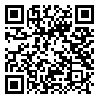Volume 17, Issue 1 (3-2023)
payavard 2023, 17(1): 45-55 |
Back to browse issues page
Ethics code: IR.SHOUSHTAR.REC.1399.035
Download citation:
BibTeX | RIS | EndNote | Medlars | ProCite | Reference Manager | RefWorks
Send citation to:



BibTeX | RIS | EndNote | Medlars | ProCite | Reference Manager | RefWorks
Send citation to:
Hemmatipour A, Hatami A, Jahangirimehr A, Jelodari F, Mehri Z. The Effect of Family-Centered Empowerment Model Based on Multimedia Education on the Quality of Life of Children Aged 8-12 Years with Beta Thalassemia. payavard 2023; 17 (1) :45-55
URL: http://payavard.tums.ac.ir/article-1-7367-en.html
URL: http://payavard.tums.ac.ir/article-1-7367-en.html
1- Master of Science in Nursing, Shoushtar Faculty of Medical Sciences, Shoushtar, Iran , A.hemmatipour@abadanums.ac.ir
2- Bachelor of Science in Nursing, Student Research Center, Shoushtar Faculty of Medical Sciences, Shoushtar, Iran
3- Master of Science in Biostatistics, Shoushtar Faculty of Medical Sciences, Shoushtar, Iran
4- Master of Science in Scientometrics, Shoushtar Faculty of Medical Sciences, Shoushtar, Iran
2- Bachelor of Science in Nursing, Student Research Center, Shoushtar Faculty of Medical Sciences, Shoushtar, Iran
3- Master of Science in Biostatistics, Shoushtar Faculty of Medical Sciences, Shoushtar, Iran
4- Master of Science in Scientometrics, Shoushtar Faculty of Medical Sciences, Shoushtar, Iran
Abstract: (1256 Views)
Background and Aim: There is a correlation between disease and quality of life in patients with chronic disease and physical disorders have a direct effect on all aspects of quality of life. Therefore, this study was conducted to determine the effect of family-centered empowerment model based on multimedia education on the quality of life of children with thalassemia.
Materials and Methods: In this experimental study, 120 patients along with their parents, who had medical records at the thalassemia center of Khatam al-Anbiya Hospital in Shoushtar, were selected according to the inclusion criteria and were divided into two groups of intervention and control (n=60) by random allocation. Subjects were matched in terms of age and gender. The data collection tools included Pediatric Quality of Life Inventory (Ped-SQL) and researcher-made questionnaires of awareness and self-efficacy in the area of thalassemia. The collected data were analyzed using SPSS and Mann-Whitney and Wilcoxon statistical tests and Pearson’s correlation coefficient.
Results: Out of 120 children who were included in the study, 87 were girls (72.5%), the mean age of these children was 9.74±2.25 years and disease duration was 5.35±4.47 years. In this study, in terms of children’s quality of life and its dimensions, after the implementation of the educational model, a significant increase was observed compared to pre-test phase only in the intervention group (P<0.001). After implementing this model, the level of knowledge (P<0.001) and self-efficacy of parents (P=0.003) was faced with a significant increase, and this significance was also observed compared to the control group (P<0.001). The variables of age, gender, disease duration and parents’ education level had no effect on parents’ self-efficacy and knowledge as well as children’s quality of life (P>0.05).
Conclusion: Based on the results of the present study, the implementation of family-centered empowerment programs based on multimedia education among parents of children with thalassemia improved the quality of life of these children by increasing the knowledge and self-efficacy of their parents. It is suggested that this program be implemented on a wider scale with better facilities for parents and the family members.
Materials and Methods: In this experimental study, 120 patients along with their parents, who had medical records at the thalassemia center of Khatam al-Anbiya Hospital in Shoushtar, were selected according to the inclusion criteria and were divided into two groups of intervention and control (n=60) by random allocation. Subjects were matched in terms of age and gender. The data collection tools included Pediatric Quality of Life Inventory (Ped-SQL) and researcher-made questionnaires of awareness and self-efficacy in the area of thalassemia. The collected data were analyzed using SPSS and Mann-Whitney and Wilcoxon statistical tests and Pearson’s correlation coefficient.
Results: Out of 120 children who were included in the study, 87 were girls (72.5%), the mean age of these children was 9.74±2.25 years and disease duration was 5.35±4.47 years. In this study, in terms of children’s quality of life and its dimensions, after the implementation of the educational model, a significant increase was observed compared to pre-test phase only in the intervention group (P<0.001). After implementing this model, the level of knowledge (P<0.001) and self-efficacy of parents (P=0.003) was faced with a significant increase, and this significance was also observed compared to the control group (P<0.001). The variables of age, gender, disease duration and parents’ education level had no effect on parents’ self-efficacy and knowledge as well as children’s quality of life (P>0.05).
Conclusion: Based on the results of the present study, the implementation of family-centered empowerment programs based on multimedia education among parents of children with thalassemia improved the quality of life of these children by increasing the knowledge and self-efficacy of their parents. It is suggested that this program be implemented on a wider scale with better facilities for parents and the family members.
Send email to the article author
| Rights and permissions | |
 |
This work is licensed under a Creative Commons Attribution-NonCommercial 4.0 International License. |





